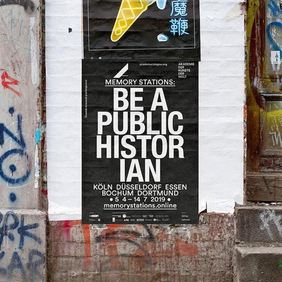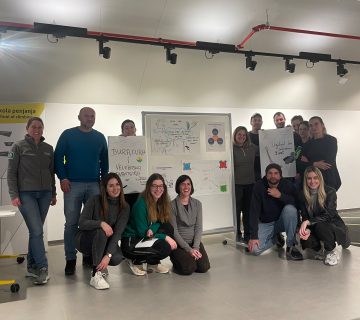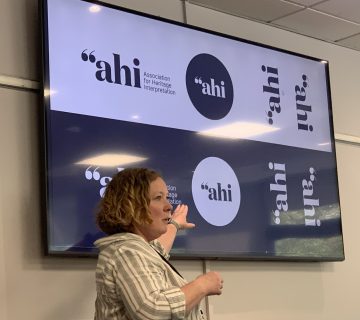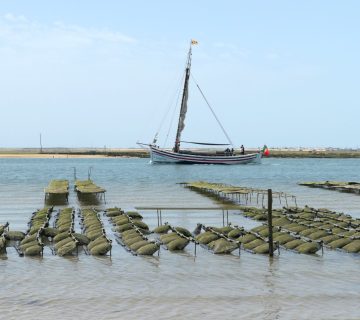In August 2020, the World Conference of Public History (https://www.ifph2020.org) will take place in Berlin, Germany. Organised by the International Federation for Public History (https://ifph.hypotheses.org) with several local and international partners, the conference will attract scholars, professionals, practitioners, and students from all over the world. In the field of the historical discipline, public history aims to democratise the process of doing and communicating history. Public history encourages the communication of history to a variety of groups of the public, moving away from small circles of peers discussing their research. Public accessibility – physically and mentally – to sources, sites, narratives, and interpretations is critical to the field. One can witness public history through various means of communication, such as exhibitions and collections, documentary films, books, blogs, guided tours, re-enactments, etc.
We are surrounded by examples of public history. If public history is sometimes built on old practices, it is also a sign of its time; it reflects a context of change in the way we preserve, research, interpret, study, communicate, use and consume the past. In doing so, public history very much connects with cultural heritage and heritage interpretation. Democratising the history-making process also relates to increased public participation.
Symbolised by citizen science and crowdsourcing projects, public participation has deeply
impacted public history. Public interaction and user-generated content are some of the most exciting developments in the field, and they question issues such as co-creation, co-production, shared authority, or who owns the past.
If some of the practices – curating, collection and heritage management, oral history, or historic
preservation – have been around for a long time, the field of public history started to develop in the 1970s in North America where the terms were first coined. The National Council on Public History – the main association of public history in the USA – now lists more than 200 university training programmes (https://ncph.org/program-guide/) in North America. Public history has, since the 1990s, also developed in other parts of the world.
Created in 2011, the International Federation for Public History (IFPH) aims to connect people, projects, and discussions all over the world. The IFPH has organised conferences in Europe, Latin America, and Asia since 2014 and has encouraged the creation of projects, university programmes and even national associations. National associations of public history have been created in Brazil (Rede Brasileira de Historia Pública http://historiapublica.com.br), in Italy (Associazone Italiana di Public History, AIPH https://aiph.hypotheses.org), and more recently in Japan (The Public History Study Group パブリックヒストリー研究会 https://public-history9.webnode.jp), attesting the development of the field. To accompany the spread of public history, the IFPH created International Public History, a peer-reviewed, online, and multilingual journal. These international networks attest of the need to discuss and redefine the role of history and historians in contemporary societies.
To find out more, visit our website (https://ifph.hypotheses.org/) or participate in our Facebook forum (https://www.facebook.com/groups/ifphgroup/).
Contact us for further details at: pubhisint@gmail.com.
Thomas Cauvin is President of the International Federation for Public History. Born in France,
he is Assistant Professor of History at Colorado State University. You can get in touch with him at: Thomas.cauvin@eui.eu.
To cite this article:
Cauvin, Thomas (2019) ‘Making history more public – Making public history’. In Interpret Europe Newsletter 4-2019, 24.
Available online: www.interpret-europe.net/fileadmin/Documents/publications/Newsletters/ie-newsletter_2019-4_winter.pdf




